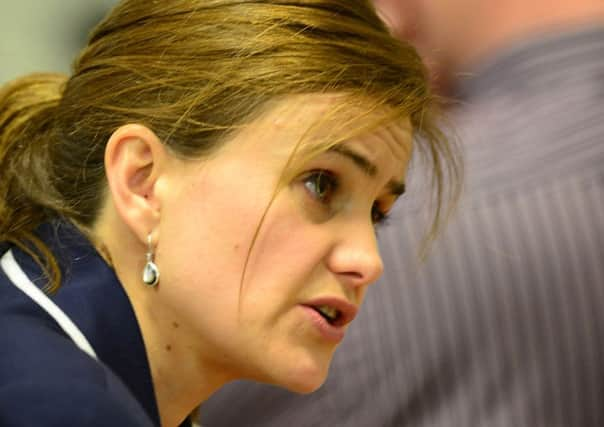Yorkshire MPs call for urgent action to close regional divide in school standards


A parliamentary debate on education standards in Yorkshire saw calls from Labour, Conservative and Liberal Democrats MPs to close a geographical divide in results which sees the region lag behind the rest of England.
Opening the debate Jo Cox, MP for Batley and Spen, said that while attainment in the capital had surged “with the targeted support and investment” of the London Challenge project, Yorkshire is now the worst performing area in the country.
Advertisement
Hide AdAdvertisement
Hide AdShe said this disparity was a disgrace adding: “It is now clear that where you are born has become a more powerful predictive factor of your performance at school than any other. Yorkshire and the Humber is a stark example of this.
Tragically for our children the region has gone from the fifth lowest achieving in the 1970s to the worst in England today with nearly a quarter of pupils attending schools that are rated less than good.” She said this was despite the tireless effort dedication and commitment of teachers, parents and pupils.
MPs called for the success of the London Challenge - which received Government investment and is credited with transforming standards in the capital- to be replicated in the North.
Mrs Cox said: “What has worked in London can work elsewhere. It can work in Yorkshire. But it will need real investment and sustained political commitment. It is time for a new, bold and ambitious target to end the postcode lottery in educational attainment.
Advertisement
Hide AdAdvertisement
Hide Ad“We have a duty to make sure every child has access to the best possible education. It should not matter where you are born.”
Graham Stuart, the Conservative MP for Beverley and Holderness and former education select committee chairman said that the current system penalised teachers for working in challenging schools and called for incentives to be created to encourage the best teachers to go where they are needed in Yorkshire.
The cross party debate was led by Mrs Cox, Greg Mulholland, the Liberal Democrat MP for Leeds North West and Martin Vickers, the Conservative MP for Cleethorpes.
In the Budget the Government announced a new Northern Powerhouse schools strategy backed by £20m a year. George Osborne said Sir Nick Weller, the chief executive of the Bradford-based Dixons Academies, would report on how schools in the North of England could be turned around in the same way that London’s education system has been.
Advertisement
Hide AdAdvertisement
Hide AdMrs Cox described this funding as paltry while Barnsley’s Labour MP Dan Jarvis said he was disappointed by the lack of detail that has been forthcoming from the Government about the plan. He noted that the strategy was not mentioned at all in the Government’s education White Paper.
MPs from all sides of the debates praised the work on teachers in the region. Mr Vickers said he did not want to paint a particularly black picture but added that a report from the Social Market Foundation, showed marked disparities between regions, “with over 70 per cent of pupils in London achieving five good GCSEs compared to 63 per cent in Yorkshire.” Mrs Cox said in her opening speech that there had been 30 years of neglect by Government, which Mr Vickers suggested divided the blame equally between the political parties.
Schools Minister Nick Gibb acknowledged that Yorkshire and the Humber performed below the national average in areas such as phonics and students achieving the English baccalaureate.
But he said that since 2010 there were 209 more good and outstanding schools in the region.
Advertisement
Hide AdAdvertisement
Hide AdMr Gibb said: “We should celebrate the great improvements that have taken place in London as honourable members during this debate have done but we should also acknowledge and celebrate improvements that the hard work of teachers, headteachers and governors has delivered throughout the country.
“Schools today are better than ever before with 1.4 million more children in good and outstanding schools than in 2010.
“In Yorkshire and Humber, compared to 2010 there are 209 more good and outstanding schools in August 2015, meaning 133,000 more pupils attend a good school today than they did in 2010.”
Mr Gibb said the principles of the London Challenge had already been applied to wider schools policy and plans to make all schools academies - many of them part of academy chains - were part of implementing this.
Advertisement
Hide AdAdvertisement
Hide Ad“The London Challenge focused on ensuring that there was collaboration between schools and collaboration is the essence of multi-academy trusts, particularly for the spread of best practice,” he said.